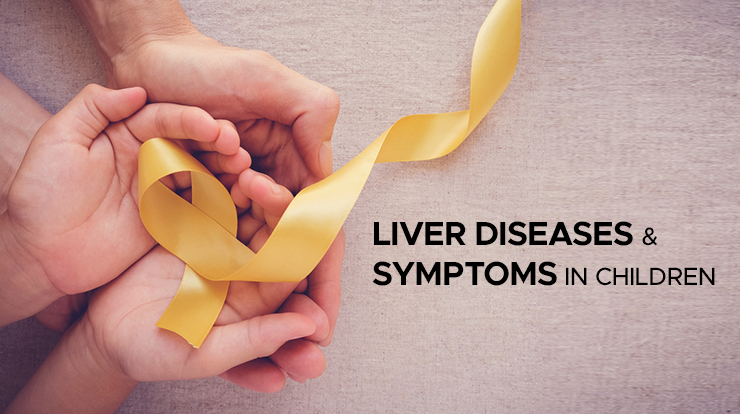
Inside the abdomen, the liver is the largest organ, and when there are liver failure symptoms in babies it can be extremely critical. The liver performs numerous significant tasks. Some of them involve the use of medications, the processing of other foreign substances, and the removal of poisonous or hazardous compounds from the blood. The liver also aids in food digestion. The body uses these proteins to construct its cells and tissues, to store and release energy, and to help blood clot.
When the liver is ill and damaged to the point where it can no longer function at all, liver failure occurs. Even in young children, liver failure symptoms in babies are a possibility, despite its rarity. Some of them have serious ailments and might need liver transplants to survive, however many of them recover rapidly.
This kind of thing strikes suddenly. It happens in kids who have never known past liver illnesses.
This type manifests as a chronic liver illness that either worsens gradually over time or does so rapidly.
Any child, regardless of age, can develop liver failure. Numerous different types of liver function for kids or illnesses can cause the liver to fail. A cause is frequently even impossible to identify. Acute (sudden) liver failure has several recognised causes, including
Most often, liver function for kids with chronic (slowly progressing, long-term) liver failure occurs after a kid has acquired cirrhosis, for instance as a result of one of the conditions mentioned above. Additional root causes include:
At first glance, symptoms of unhealthy liver in children may resemble those of other common paediatric illnesses like the flu. Early signs could include:
Early-stage liver failure or symptoms of unhealthy liver in children might be difficult to diagnose without specialised diagnostics. This is due to the symptoms’ resemblance to those of numerous different disorders. Tests will be performed as additional symptoms develop to look for:
Depending on the underlying cause, a child’s liver failure or symptoms of unhealthy liver in children will require the appropriate treatment. Potential choices include:
Even though a child with acute liver failure will always be hospitalised for strict monitoring and supportive care, this condition occasionally improves on its own. For instance, if it is brought on by specific viruses, this may occur.
When acute liver failure is brought on by toxins or heart conditions, for instance, it may be possible to treat it with medication. Specific medication can be used to treat acetaminophen overdose-related liver failure (an antidote). Chronic liver failure necessitates long-term treatment from a liver specialist, who may provide vitamins, antibiotics, diuretics (water pills), blood pressure meds, or sleep or disorientation medications (encephalopathy).
A Liver Transplant in India is ultimately required for survival in about half of all children with acute liver failure and many children with chronic liver failure. Transplanting the liver is a difficult procedure. A fresh liver is put in its place after the diseased one is removed. The new organ can be the entire or a portion of a liver from a deceased donor.
Sometimes it is possible to use a portion of a liver from a compatible living donor who is old and big enough, typically healthy, and belongs to the same blood group, especially in younger children. These transplants with living donors are not done at every liver transplant facility, though.
It is usually serious when symptoms of unhealthy liver in children are present, and it can occasionally go worse very quickly. A paediatric liver specialist must be consulted right once if your kid is exhibiting symptoms that suggest liver failure, has just been diagnosed with liver failure by another healthcare professional, or has chronic liver failure but is now exhibiting new symptoms.
In the world of living donor liver transplants (LDLT), Dr Vivek Vij has the lowest percentage of biliary complications (4%). He is easily able to assist you and your beloved child with all the appropriate remedies.


